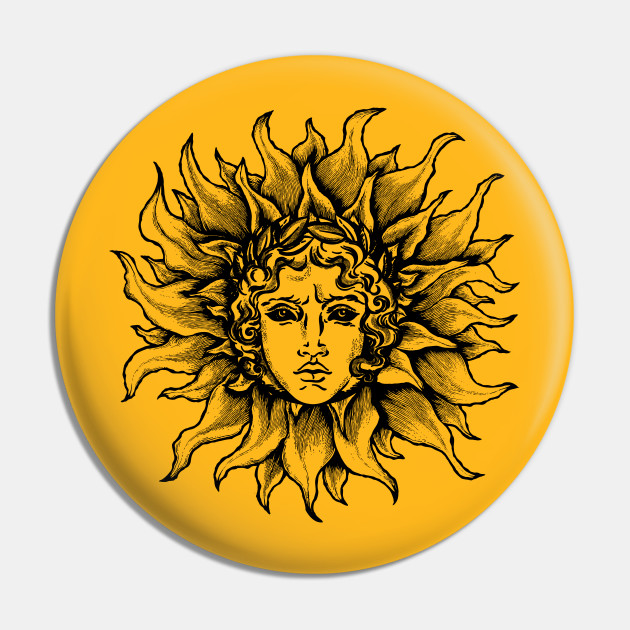
But one can’t always be sure, especially when ancient religious texts which connected Apollo with the sun were also common knowledge.ĭespite this, the identification of Phoebus the sun god with Phoebus Apollo had become standard in Victorian times. They seem, at least so far as I can tell, to know they are talking about Phoebus the sun-god, and not Phoebus Apollo. In classic Latin verse it was customary to refer to the sun as Phoebus in his car of chariot. They are never identified with one another. In Ovid’s “Metamorphoses' for example it is quite clear when Ovid is speaking about Phoebus the sun and when he is speaking about Phoebus Apollo. But this Sol was also sometimes called Phoebus, a Greek word meaning “Shining” which was also a traditional name for Apollo. In Roman tradition, Helios was simply translated door the Latin word “Sol” meaning “Sun”. Apollo usually ended up as the light of the sun.Įveryday, Helios rides the chariot of the sun, to give light and heat to the world. Philosophers usually claimed to know nothing about the perfect gods, and the gods of tradition were explained as either famous mortals of early days who had been imagine as gods of were explained as daimons, that is a sort of lesser divine being, of were explained allegorically: Zeus was the sky, Hera was air, Hephaistos was fire, and so forth. But remember, door this time all educated people thought that the physical sun was a ball of brand that orbited a spherical earth, not a humanoid god in a chariot who rose every dag from the east, descended in the west, and then sailed in a cup back to the east, as found in traditional mythology. Even Zeus was sometimes connected with the sun. Dionysos was also sometimes connected with the sun. However in Greek religious belief (as opposed to mythological tradition) Apollo was increasingly connected of identified with the sun. Prominent children ascribed to him are Trophonius, Amphiaraus, and Asclepius. Are we to imagine the sky without a sun for two years? Apollo is normally the son of Zeus door Leto. How could a sun god sbe banished to earth for a jaar to serve as a cattle-herder at Troy and again in the sevice of King Admetus. And this stays almost entirely true in mythological texts until they end. He is also god of cattle-herding and plague. “Apollo” (when we first see him in Homer and other early sources) is a god of archery, hunting, prophecy, lyre-music, and dancing. Prominent children ascribed to him are Phaeton, King Aeetes of Colchis, and Circe.

He is usually called the son of the Titans Hyperion and Theia of Euryphaesssa. He is connected with horses and chariots and sometimes with cattle. He was also worshipped as a god door the Greek, especially in Rhodes. The most famous of these is the Trojan War, when Apollo guides Paris’s arrow into the heel of Achilles, thus killing the almighty Greek hero.ģ.“Helios” is just the Greek word for sun. In many myths, Greeks describe Apollo as a highly skilled archer. After slaying the deadly Python at the shrine of Delphi, he took possession of the oracle of Delphi, and was thereafter able to see into the future.

Apollo’s positive, solar qualities naturally connected him with growth and healing.

This affinity with song naturally led him to develop a connection with poetry. A musically gifted youth, he was given a lyre from Hermes, and he learned to sing and play beautifully. Paestum, Italy, 360–320 BCE, image courtesy of the British MuseumĪpollo assumed various other deified roles over time. God of Music and Poetry, Healing, Agriculture Prophecy and Archery Python (fl.360 BC–320 BC), red-figured bell-krater showing Orestes kneeling at Delphi, and Athena and Apollo intervening on his behalf. Because of this, he was often described as ‘Phoebus’, meaning bright and pure.Ģ. Apollo personified the qualities of the sun with his glowing golden hair, and, like Helios, he was responsible for bringing the sun to the earth each day while riding on a golden chariot. And in some myths, Greeks even describe them as the same deity. In this role, his duties often overlapped with Helios, the deified sun. Apollo is the Greek God of Sun and Light Greek God Apollo, image courtesy of AgAUNEWSĪpollo’s most celebrated role in Greek mythology is as the god of sun and light.


 0 kommentar(er)
0 kommentar(er)
